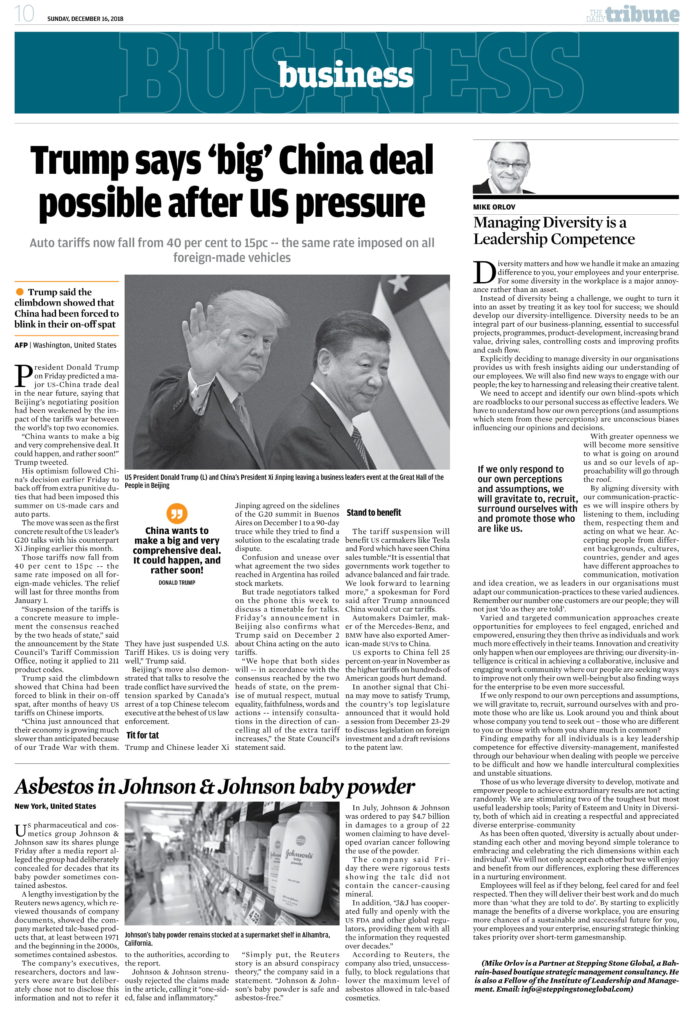
Managing Diversity is an Enterprise Competence
Diversity needs to be an integral part of business-planning, essential to successful projects, programmes, services and product-development, increasing brand-value, driving sales, controlling costs and improving profits and cash flow.
How diversity is handled will make an amazing difference to how employees react to leadership. If employees are reacting more positively then you are creating a sound platform for the sustainable success of your enterprise.
Instead of thinking about diversity as a challenge, you ought to turn diversity into an asset.
By aligning diversity with your communication-practices you will inspire others by listening to them, including them, respecting them and acting on what you hear. Accepting people from different backgrounds, cultures, countries, sexes, and ages is a vital leadership tool. All your employees have different needs and you should appropriately amend your approaches to communication, engagement and motivation.
Remember your number one customers are your people; they will not just ‘do as they are told’.
Explicitly deciding to manage diversity in your organisation will provide you with fresh insights aiding your understanding of your employees. You will also find new ways to engage with your people; the key to harnessing and releasing their creative talent.
This is especially true in today’s global marketplace and is relevant for our region given the drive for local/national recruitment and employment.
As your organisation interacts with different cultures and clients and your enterprise is staffed by people from all over the world you must encourage and embrace learning from, and sharing knowledge through, workplace-diversity. By stimulating transfer of knowledge you will enable a higher percentage of future local recruitment to increase the percentage of local employees for your enterprises
You must therefore explicitly address and then manage diversity in your workplace.
Initially you will need to accept and identify your own blind-spots which are roadblocks to your continued success as an effective leader. You have to understand how your own perceptions, and assumptions, which stem from these perceptions, are unconscious biases influencing your opinions and decisions.
You will need to focus on adopting approaches to counter these personal perspectives. This will help you limit poor-judgement which often leads to unfortunate conclusions. With greater openness you will become more sensitive to what is going on around you and so your levels of approachability will increase – ensuring your employees feel as if they are being well-regarded, not just assets to be squeezed.
You will stimulate a welcoming, relationship-focused reputation by recognising the damage which can flow from only listening to your own point of view, reinforced by those who see political advantage in always agreeing with the boss.
You will be then surprised by just how many people in the workplace will want to come and talk to you. You will be seen to be much more open to listening to others; your employees will find it easier to come and talk to you. Then, most importantly, you will be seen to be taking relevant actions as a result of your listening.
Moving beyond simple tolerance to embracing and celebrating diversity means you will not only accept others but you and your enterprise will enjoy and benefit from these differences. Employees will feel as if they belong, feel cared for and feel respected. Then they will deliver their best work and do much more than ‘what they are told to do’.
By starting to explicitly manage the benefits of a diverse workplace, you will ensure more chances of a sustainable and successful future for you, your employees and your enterprise and you will paradoxically also stimulate a more nurturing environment for future local recruitment.
